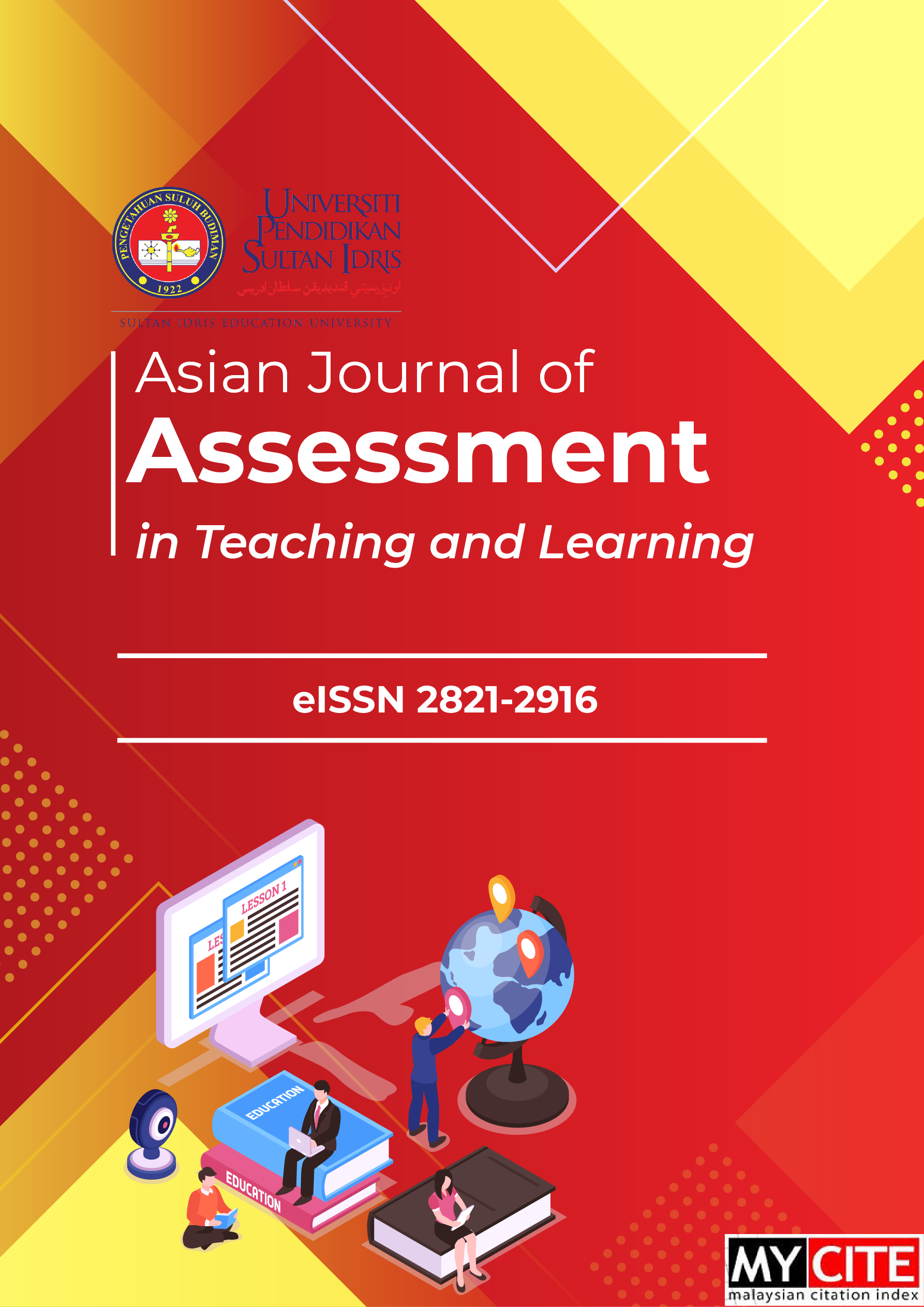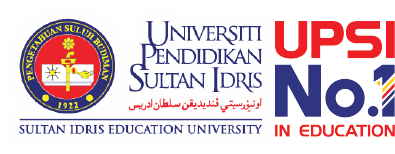Development of IPAS Learning Modules Based on Problem-Based Learning on Ecosystem Material for Elementary School Students
DOI:
https://doi.org/10.37134/ajatel.vol13.1.9.2023Keywords:
Modules, IPAS, Problem-Based LearningAbstract
This study aimed to achieve the following objectives: (1) determine the necessity for an Independent Curriculum Science (IPAS) learning module in Sale District, Rembang Regency; (2) design a Problem-Based Learning (PBL) module for Science focused on Ecosystem Material for 5th-grade students in the same district; (3) assess the feasibility of the PBL-based IPAS learning module on Ecosystem Material for these students; and (4) evaluate the efficacy of the PBL Science module in enhancing learning outcomes for 5th-grade students in Sale District. The research employed a development approach based on Borg and Gall's methodology, with modifications to meet the project's specific needs. This included stages such as preliminary research, planning, initial product development, field trials, revisions, and final tests. Data collection utilized a combination of quantitative techniques (testing and validation) and qualitative methods (observation, interviews, questionnaires). Both qualitative and quantitative analyses were conducted. The findings indicated a significant need for the Problem-Based Learning science module. The development process involved detailed planning, execution, and evaluation phases. The module's feasibility was validated by experts, and its effectiveness was confirmed through statistical analysis, specifically a t-test using SPSS. The results demonstrated a significant difference in performance between the control and experimental groups, confirming the module's efficacy. Therefore, it was concluded that the Problem-Based Learning-based Science module is suitable for integration into the Independent Curriculum Science education for 5th-grade students.
Downloads
References
Anggreini, G., & Harjono, N. (2020). Komparasi Model Pembelajaran Problem Based Learning dan Teams Game Tournament ditinjau dari Kemampuan Berpikir Kreatif Siswa Sekolah Dasar. Jurnal Basicedu, 4(4), 985-994. https://doi.org/10.31004/basicedu.v4i4.486
Anugraheni, I. (2018). Meta Analisis Model Pembelajaran Problem Based Learning dalam Meningkatkan Keterampilan Berpikir Kritis di Sekolah Dasar. Polyglot: Jurnal Ilmiah, 14(1), 9–18. https://doi.org/http://dx.doi.org/10.19166/pji.v14i1.789
Chiu, T. K., & Chai, C. S. (2020). Sustainable curriculum planning for artificial intelligence education: A self-determination theory perspective. Sustainability, 12(14), 5568. https://doi.org/https://doi.org/10.3390/su12145568
Datreni, N. L. (2022). Model Pembelajaran Problem Based Learning Meningkatkan Hasil Belajar Matematika Siswa Kelas III Sekolah Dasar. Journal of Education Action Research, 6(3), 369–375. https://doi.org/https://doi.org/10.23887/jear.v6i3.49468
Dudley, P. (2013). Teacher learning in Lesson Study: What interaction-level discourse analysis revealed about how teachers utilised imagination, tacit knowledge of teaching and fresh evidence of pupils learning, to develop practice knowledge and so enhance their pupils' learning. Teaching and teacher education, 34, 107-121. https://doi.org/10.1016/j.tate.2013.04.006
Gall, M. D., Gall, J. P., & Borg, W. R. (2007). Educational research: an introduction (8. utg.). AE Burvikovs, Red.) USA: Pearson.
Guskey, T. A. (2013). Defning Student Achievement. In International guide to student achievement (pp. 3-6). Routledge.
Hadiz, V. (2010). Localising power in post-authoritarian Indonesia: A Southeast Asia perspective. Stanford University Press.
Irwan, V. P., & Mansurdin, M. (2020). Penerapan Model Problem Based Learning Dalam Peningkatan Hasil Belajar Tematik Terpadu Di Sekolah Dasar. Jurnal Pendidikan Tambusai, 4(3), 2097-2107.
Khomsah, S. N., & Fajrie, N. (2023). Penggunaan Pembelajaran Contextual Teaching and Learning (CTL) pada Pembelajaran Matematika Siswa Kelas III di SDN Karangwono 01 Pati. Journal on Education, 5(3), 5925-5929. https://doi.org/10.31004/joe.v5i3.1355
Krsmanovic, M. (2021). Course Redesign: Implementing Project-Based Learning to Improve Students' Self-Efficacy. Journal of the Scholarship of Teaching and Learning, 21(2), 93-106. https://doi.org/10.14434/josotl.v21i2.28723
Lestari, M., & Qamariah, Z. (2023). Major Steps In Curiculum Merdeka Design For Learning English. Jurnal Ilmiah Multidisiplin, 2(04), 96-102. https://doi.org/10.56127/jukim.v2i04.810
Mushlihuddin, R., Nurafifah, & Irvan. (2018, January). The effectiveness of problem-based learning on students’ problem solving ability in vector analysis course. In Journal of Physics: Conference Series (Vol. 948, p. 012028). IOP Publishing. https://doi.org/10.1088/1742-6596/948/1/012028
Nasrul, S. (2018). Pengembangan Bahan Ajar Tematik Terpadu Berbasis Model Problem Based Learning Di Kelas IV Sekolah Dasar. Jurnal Inovasi Pendidikan Dan Pembelajaran Sekolah Dasar, 2(1). https://doi.org/https://doi.org/10.24036/jippsd.v2i1.100491
Ortega-Auquilla, D., Fajardo-Pacheco, I., Cabrera-Vintimilla, J., & Siguenza-Garzón, P. (2019). A comprehensive overview on the fundamentals of curriculum development: understanding key interrelated theoretical aspects. Revista Boletín Redipe, 8(11), 148-168. https://doi.org/10.36260/rbr.v8i11.866
Palobo, M., Sianturi, M., Marlissa, I., Purwanty, R., Dadi, O., & Saparuddin, A. (2018, October). Analysis of teachers’ difficulties on developing curriculum 2013 lesson plans. In 1st International Conference on Social Sciences (ICSS 2018) (pp. 1319-1324). Atlantis Press. https://doi.org/10.2991/icss-18.2018.278
Phasa, K. C. (2020). Meta Analisis Pengaruh Model Pembelajaran Problem Based Learning Terhadap Kemampuan Berpikir Kritis Dalam Pembelajaran Matematika. Jurnal Cendekia: Jurnal Pendidikan Matematika, 4(2), 711–723. https://doi.org/https://doi.org/10.31004/cendekia.v4i2.296
Pramana, M. W. A., Jampel, I. N., & Pudjawan, K. (2020). Meningkatkan hasil belajar biologi melalui e-modul berbasis problem-based learning. Jurnal Edutech Undiksha, 8(2), 17-32. https://doi.org/10.23887/jeu.v8i2.28921
Sari, I. N., Ardianti, S. D., & Khamdun, K. (2023). Pengaruh Model Pembelajaran Problem Based Learning Berbantuan Media PSA (Panggung Siklus Air) Terhadap Kemampuan Berpikir Kritis Siswa. Attadrib: Jurnal Pendidikan Guru Madrasah Ibtidaiyah, 6(2), 302–310. https://doi.org/10.54069/attadrib.v6i2.539
Septiyani, I. (2023). Teachers’challenges In Implementing an Independent Learning Curriculum in Science and Social Studies for Primary IV Students. Jurnal Cakrawala Pendas, 9(3), 463–474. https://doi.org/https://doi.org/10.31949/jcp.v9i3.5118
Setyawati, D. H. L., Fakhriyah, F., & Khamdun, K. (2020). Peningkatan Berpikir Kritis Siswa Sekolah Dasar Dengan Menerapkan Model Contextual Teaching and Learning Berbantuan Media Lempar Karet Pengetahuan. Pendas: Jurnal Ilmiah Pendidikan Dasar, 5(2), 130-139. https://doi.org/10.23969/jp.v5i2.3426
Wachidi, W., Rodgers, A., & Tumanov, D. Y. (2020). Professional competence understanding level of elementary school in implementing curriculum 2013. International Journal of Educational Review, 2(1), 99-105. https://doi.org/https://doi.org/10.33369/ijer.v2i1.10642
Widayanti, R., & Nur’aini, K. D. (2020). Penerapan Model Pembelajaran Problem Based Learning untuk Meningkatkan Prestasi Belajar Matematika dan Aktivitas Siswa. Mathema: Jurnal Pendidikan Matematika, 2(1), 12–23. https://doi.org/https://doi.org/10.33365/jm.v2i1.480
Downloads
Published
How to Cite
Issue
Section
License
Copyright (c) 2023 Endah Tri Noviani, Erik Aditia Ismaya, Khamdun

This work is licensed under a Creative Commons Attribution-NonCommercial-ShareAlike 4.0 International License.





